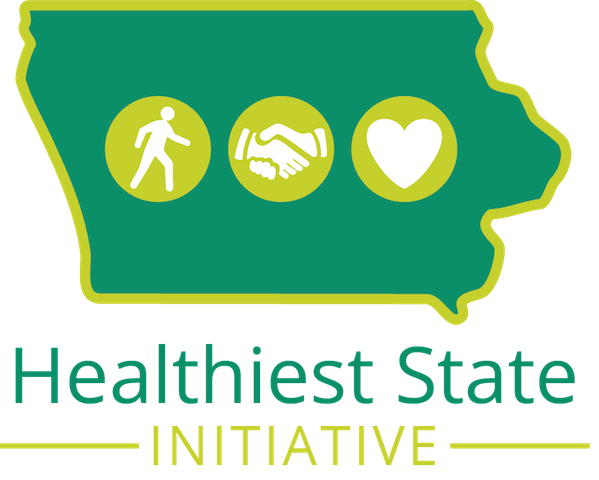HAPPY HEART
By Paige Green, Hy-Vee Dietitian on Monday, February 7, 2022
February is American Heart Month
February is the month of love! It is the perfect time to show your own heart the attention it deserves during American Heart Month.
Each February, American Heart Month is federally designated to raise awareness of heart disease and ways to help prevent it. About 1 in 4 deaths in the U.S. can be attributed to heart disease.
RELATED: Foods that keep your heart healthy
Celebrate American Heart Month by showing this vital organ extra love with nutritious recipes, shopping tips and food swaps. Let us first go straight to the heart of the matter with substitutions for cooking. By making these easy swaps, you are able to protect the health of your heart:
REDUCE SODIUM INTAKE
Use less salt than called for in recipes. (This works better for cooking than baking, which requires amounts that are more exact.) Try unsalted chicken stock in place of chicken broth, and use no-salt-added canned vegetables. Explore alternative ingredients such as coconut aminos - a lower-sodium alternative to soy sauce.
REDUCE SUGAR
Replace 1 cup sugar with 1/2 cup agave nectar, or 3/4 cup maple syrup or 1/2 cup stevia.
INCREASE VEGETABLE AMOUNTS
Serve 1 cup of vegetables instead of ½ cup. Swap in spiral vegetable noodles for pasta. Blend plant and animal proteins — combine black beans with ground beef in tacos, meatloaf or burgers.
HEART-HEALTHY RECIPE: Mango-Black Bean Salsa
Next, while you are shopping keep these heart-healthy tips in mind:
READ FOOD NUTRITION LABELS
Look for foods with 2 grams or less of saturated fat, 0 grams of trans fat and fewer than 140 mg of sodium per serving. Choose foods that have at least 5 grams of fiber per serving.
BUY FROZEN WHEN FRESH ISN’T AVAILABLE
When buying frozen or canned fruits and veggies, look for products without added sauces, salt, sugars or syrups. Plain frozen and canned produce is just as nutritious as fresh.
RELATED: 4 steps to a healthier heart
ADD GOOD FATS TO YOUR CART
Unsaturated fats like nuts, olive oil, avocados and salmon can reduce the amount of low density (“bad”) lipoprotein (LDL) cholesterol in the blood and lower the risk of heart disease.
CHOOSE WHOLE-GRAIN FOODS
Look for the word “whole-grain” as the first item in the ingredient list instead of enriched flour or “multi-grain.” Whole grains contain the entire grain and are a better source of dietary fiber.
Paige Green received her Bachelor of Arts degree in Business Management at the University of Northern Iowa in 2012. She pursued her passion for nutrition at Iowa State University, where she earned her Bachelor of Science degree in dietetics during the spring of 2015. She is a member of the Academy of Nutrition and Dietetics and the Iowa Academy of Nutrition and Dietetics. Paige truly sets out to educate individuals on finding a healthy balance in life and her passion for people and nutrition inspires clients of all ages. You can find Paige at the Ames Hy-Vee on Lincoln Way.


